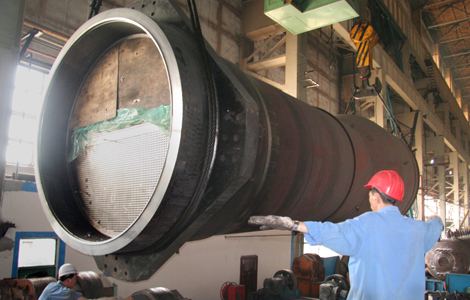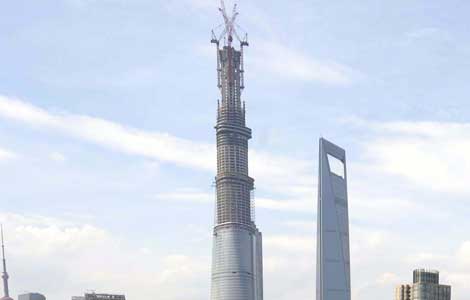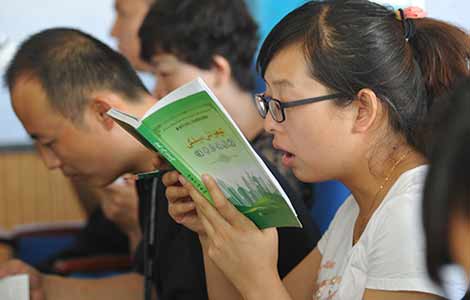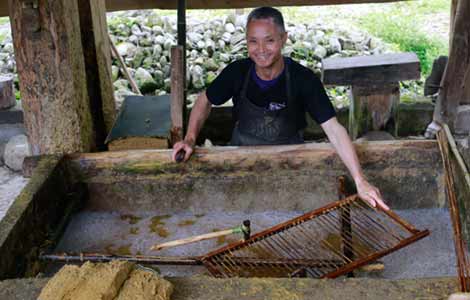Study reaffirms 'cancer villages'
Updated: 2013-08-08 02:56
By Shan Juan and An Baijie (China Daily)
|
||||||||
Polluted water resources nearby Huaihe River linked to tumors
A government study has reaffirmed the existence of "cancer villages" along a major river, the latest sign of fast economic growth taking a heavy toll on the environment.
The confirmation also reflects authorities' growing openness on environmental issues, experts said.
A rising cancer epidemic has been detected in the areas along the Huaihe River, said Yang Gonghuan, former deputy director of the Chinese Center for Disease Control and Prevention, who led the study.
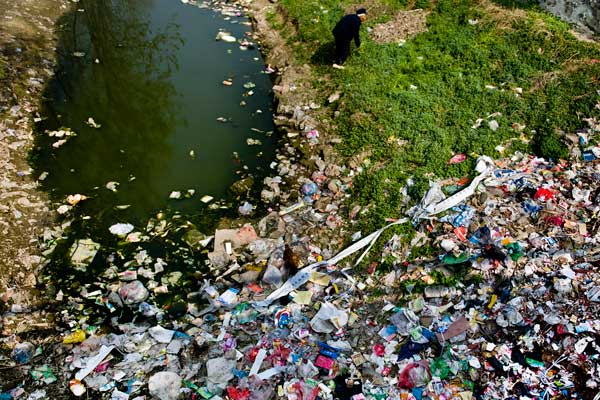 |
|
Garbage piles up on the bank of a polluted feeder of the Shaying River, the biggest distributary of the Huaihe River, in Shenqiu, Henan province. Residents of several villages along the Shaying River have been ravaged by cancer as a result of water pollution. [Sun Junbin / for China Daily] |
In one of the most severe cases, the lung cancer mortality rate of local women increased twentyfold from 1973 to 2005 in Shenqiu county, Henan province, according to the study.
The cancer incidence in the affected areas along the Huaihe River was 50 percent higher than the national average of 0.25 percent in 2004-05.
The study was based on water surveillance data along the river since the 1980s and local cancer rates from the 1970s to 2005.
The 1,000-kilometer Huaihe River runs through Henan, Anhui and Jiangsu provinces, which have developed rapidly since the 1980s, with annual GDP growth averaging 10 percent.
Yang said the water in the river has been polluted since the 1980s. Pollution from factories that make and process leather and paper and manufacture plastic have affected water quality. Small factories, which usually have poor pollution control capacities, make the situation worse.
Some places that had low cancer rates in the 1970s now have high rates, she said.
"These places happened to be seriously affected by water pollution in the Huaihe River", showing a correlation between water quality and cancer, she said. "The study has great public health significance as we've spotted the most affected areas, which would help with more targeted cancer intervention efforts in the long run."
Further research and investigation are needed to detect and link the specific carcinogens to the cancer epidemic, she added.
The study was launched in 2004 after then premier Wen Jiabao told the ministries of health, environmental protection and water resources and local governments along the river to look into the rising cancer epidemic, after media reports on cancer villages.
Huo Daishan, director of Huaihe River Guardian, a non-governmental organization, has followed the issue since 2004 and said the findings of the study will enhance public awareness and draw the attention of decision-makers.
In 2005, when Yang Gonghuan went to Shenqiu county to conduct a field study on a trip organized by the local government, "it took great efforts for her to have a meeting with me without local officials present", Huo recalled. "But local governments have become more open about the issue they once wanted to hide."
Cancer is a complicated disease related to many risk factors including pollution, diet, smoking and certain infections, said Chen Wanqing, deputy director of the National Central Cancer Registry and a senior cancer specialist.
"So more scientific evidence is required to build a link between water quality and the disease," he said.
Yang said many risk factors are included in her research.
In one county where locals had similar lifestyles, the incidence of cancer among those who drank water from the river was much higher than those who had alternative drinking water sources, she said.
Generally speaking, "villages along the polluted river tended to have a higher cancer occurrence", she said.
But conditions appear to be improving, according to the study. The polluted areas have dwindled since 2005 thanks to government actions, including shutting down many factories that were polluting the river.
For villager Guo Heling in Shenqiu, whose brother was diagnosed with nasal cancer four years ago and is now bedridden, his hopes are attached to his two sons, who work in Shanghai.
"I hope that my sons can buy houses in some other place. That is the only way we can leave the polluted land forever," he said.
Contact the writers at shanjuan@chinadaily.com.cn and anbaijie@chinadaily.com.cn
Most Viewed
Editor's Picks

|

|

|

|

|

|
Today's Top News
China to be leading business travel market
Cards make paying global tuition easier
Probes not targeting foreign brands
Sino-US trade gap narrows
Dairy firms hit with fines
A stage set for big innovation
Exports, spending 'to ebb'
Islands dispute hammers attitudes
US Weekly

|

|


